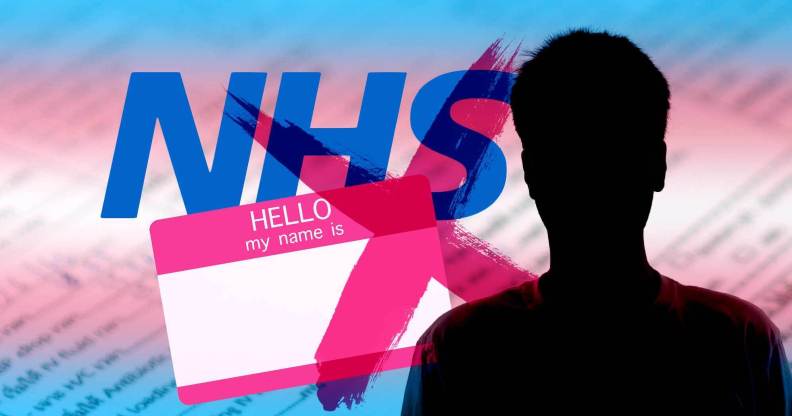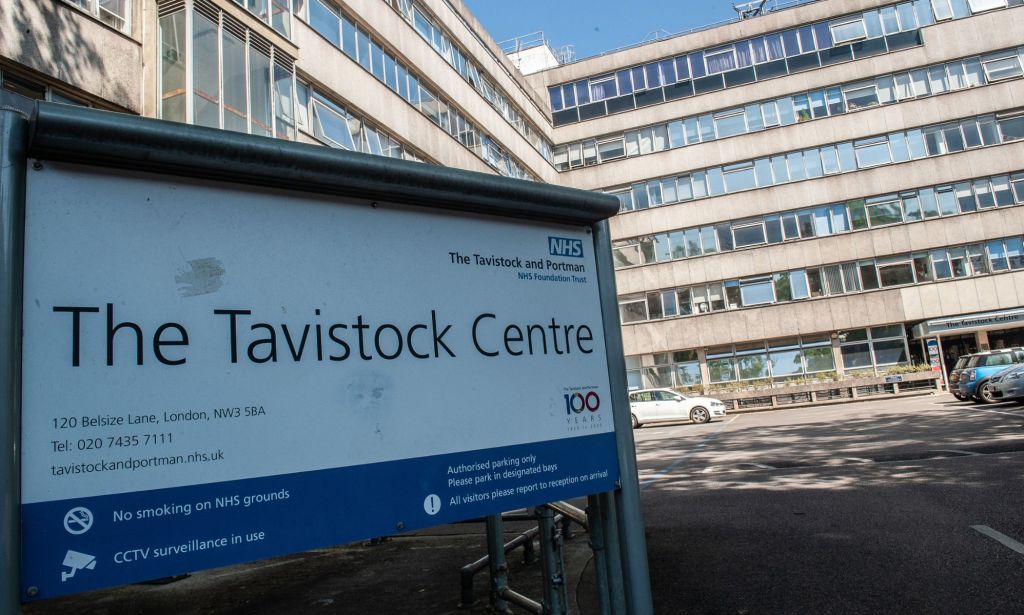NHS criticised for deadnaming trans youth in letters: ‘Our children deserve better’

NHS England deadnamed several trans patients in apology letters sent to them. (Getty)
NHS England deadnamed several trans patients in apology letters sent to them. (Getty)
Parents of transgender children are urging NHS England to take better care with documents sent to trans patients after their youngsters were repeatedly deadnamed in letters.
Several parents have told PinkNews their children were brought to tears by letters which failed to use the right pronouns, names, or prefixes for patients despite the fact that the necessary paperwork to have their names legally recognised had been filled out correctly.
“I felt sick when I received the letter,” said Nicky, who has a transgender child.
“Firstly because it upset my son and secondly because we are already seriously concerned about the direction [in which] the NHS is heading in with regards to the care of children.”
She told PinkNews that her 10-year-old son was “in tears” after handing her a letter from NHS England, addressed to “the parents of [deadname].”
A deadname refers to the previous name that a trans person used before transitioning, typically their birth name.
The envelope included a second letter directed towards her son, also addressed to his birth name, which he no longer uses.
The letter – which Nicky said explained “the utter mess” of trans healthcare in the UK – seemed to completely ignore her son’s NHS records which had been “fully changed”, she claimed.
“He has a new NHS number,” she continued. “The fact they did this is disgraceful.”
Patients are able to have their names legally recognised on NHS documents after successfully applying for a deed-poll change and declaring updated details to relevant local surgeries. The same is true with legal gender identities and a Gender Recognition Certificate.
But, despite the NHS website saying patients who have their legal gender recognised will have no connection to their previous NHS number, patients across the UK have shared similar stories to that of Nicky’s son.

Another parent, who has an eight-year-old child and wished to remain anonymous, said the first contact they received from the NHS – five months after an initial referral – was addressed to their deadname.
The parent told PinkNews that, during the referral process, they specifically asked for a preferred name to be used.
“It’s such a ridiculous thing to do because they specifically ask for a preferred name, then have made a specific choice not to use it,” the parent said.
“It’s like they are trying to create distrust of the service.”
Both letters, which PinkNews has seen, contained an apology from NHS England for the planned closure of the Tavistock Centre’s Gender Identity Service (GIDS) next year, as well for as the long waiting times.
The letters also stated that patients would receive an update in several months regarding a future appointment with the Gender Incongruence Service, which is set to replace GIDS later in the year.
Several others people shared similar letters sent to them, most of which referred to the child’s deadname.
‘Our children deserve better’
Nicky said the issue was indicative of the lack of support afforded to her son by the NHS, accusing the health service of having “no care” for her child.
“My son was referred three years ago and has been on the waiting list ever since,” she said. “We have had times when he has been really struggling and had nowhere to turn.
“There are no local services. Child and Adolescent Mental Health Services won’t accept children for gender-related issues as they have no training.
“I asked my GP for help when my son was really anxious, [only] to be told there is no help at all. Our children deserve better.”
Waiting times for a first appointment can be a as long as 84 months in some parts of the country, although a Freedom of Information request in 2022 suggested that, for some clinics, waiting times can reach as high as 35 years.
“We are at a point where we need to go private and it’s terrifying due to NHS England public consultation talking about reporting parents to social services if we go down that route,” Nicky said.
Last year, as part of a public consultation for gender identity services for trans youth, the NHS said that puberty-blocking drugs “prescribed or accessed outside the services” would prompt clinicians to cease “clinical supervision” for any interventions that took place.
The specification on private or unregulated prescriptions reads: “Should a child or young person access [puberty blockers] from unregulated sources or unregulated providers, the service will not assume responsibility for prescribing recommendations, nor will it enter into shared care arrangements in these circumstances.”
The current largest private healthcare provider, GenderGP, is not registered by the NHS because it operates outside the UK. Its practitioners, however, are “fully registered” with the necessary bodies.
For Nicky, getting the help her son so desperately needs has become a priority. She intends to move abroad to escape the state of trans healthcare in the UK, she told PinkNews.
“All the talk of social transition being dangerous and the appalling questions on the public consultation have already made me question whether we should pull him off the list,” she said.
“If they can’t even get the basics right, and have already hurt my child, do I really want to put him through it?
“It has never happened before, the letters from the Tavistock directly always had his correct name. This letter from NHS England is the first time it’s happened.”
PinkNews has been told by NHS England that the letters would have pulled details from the NHS Spine – the healthcare provider’s digital information service – and that some details may not have been updated.
It also claimed that the number of patients deadnamed in correspondence was very small.

